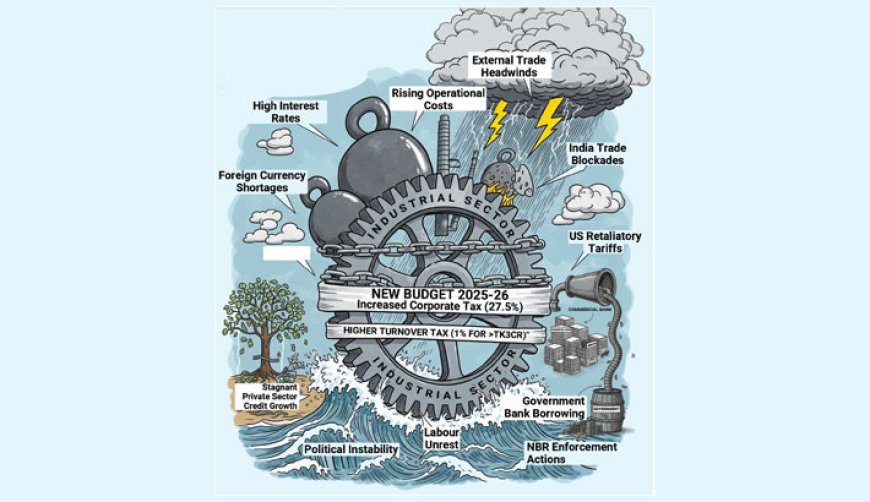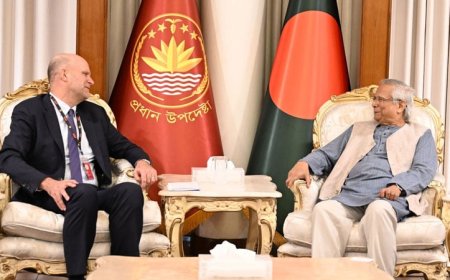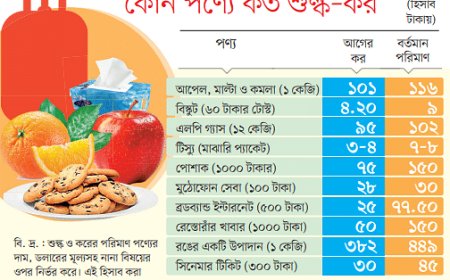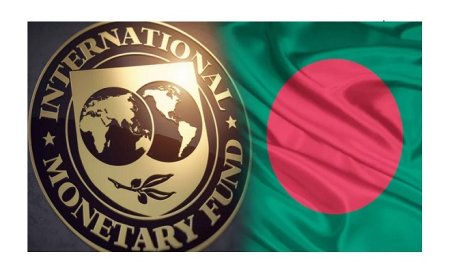Budget shock looms for struggling industries
The new budget has increased corporate and turnover taxes, triggering widespread concern throughout the private sector.

Industries Face Mounting Pressure as Budget Brings Fresh Tax Burdens
Industries across Bangladesh — including top business conglomerates — are under growing pressure as they contend with a slew of challenges ranging from soaring interest rates and foreign currency shortages to rising operational costs.
Already grappling with political instability, labour unrest, and strict enforcement drives by the National Board of Revenue (NBR), many business leaders fear that the newly announced national budget for FY2025–26 could further constrain their operations.
The budget introduces higher corporate and turnover taxes, raising alarm across the private sector.
For unlisted companies, corporate tax has been raised by 2.5 percentage points to 27.5%. While firms that carry out transactions via banking channels can still access the 25% rate, many may struggle to meet the stringent conditions required.
Turnover tax has also been increased. Businesses with annual turnover above Tk3 crore will now pay 1% tax — up from 0.6% — regardless of whether they are making a profit.
This added tax burden comes at a time when companies are already squeezed by inflation and narrowing profit margins.
Speaking at a press briefing on Saturday, Bangladesh Textile Mills Association (BTMA) Vice President Abdullah Al Mamun warned that the new tax measures would deal a severe blow to the sector.
“Our industry is already suffering from rising energy costs, increased labour expenses, and reduced export incentives,” he said.
The tax on key imported raw materials — such as cotton and synthetic fibres — is technically adjustable, but business leaders remain sceptical about its practical application.
Industry insiders say the overall business climate is deteriorating, even though no formal index exists to track it. They cite a complex mix of global and domestic factors disrupting trade, investment, exports, supply chains, currency stability, and GDP growth.
Bangladesh Bank data reveals that private sector credit growth fell to 6.95% at the end of May, down from 10.35% a year earlier.
Rizwan Rahman, former president of the Dhaka Chamber of Commerce & Industry, told the Daily Sun: “Despite having globally respected economists at the helm, the budget lacks real reform.”
“There’s a lack of confidence among businesses. The Advance Income Tax (AIT) shouldn’t be raised until the NBR fully automates VAT collection. We need a more tolerant tax structure — like those seen in other Asian economies — to attract investment, create jobs, and support industrial expansion.”
That sentiment is spreading through the broader business community.
Shams Mahmud, president of the Bangladesh Thai Chamber of Commerce and Industry, called the situation increasingly untenable.
“Industries are reeling from one shock after another — the sudden hike in energy prices, the weakening taka, and the removal of the interest rate cap,” he told Daily Sun. “We had hoped for bold reforms to make us more competitive. Instead, we’re seeing growing disconnects between key government ministries.”
Lending Slows as Interest Rates Surge
Previously, under the Awami League-led government, commercial lending rates were capped at around 9%. But under IMF-backed reforms, Bangladesh Bank has steadily increased the policy rate — now at 10%, up from 5%.
As a result, commercial loan interest rates have surged to 16–18%, compared to 8–9% in recent years.
This sharp increase is cutting into business profitability and raising risks.
Private sector credit growth has remained sluggish, dipping below 7% for several months in early 2025. It hit a 21-year low of 6.82% in February, edged up to 7.57% in March, dropped slightly in April, and stood at 6.95% in May.
Letters of credit (LCs) for capital machinery — a key indicator of private investment appetite — also declined sharply. In the first 10 months of FY2024–25, LC openings fell by 27.46%, and settlements by 25.56%, compared to the previous year.
“There’s currently weak demand for credit in the private sector,” said Syed Mahbubur Rahman, managing director and CEO of Mutual Trust Bank Limited. “To revive lending, we need to restore business confidence and ensure political stability.”
Govt Bank Borrowing Soars to Tk78,000cr
Worsening private sector concerns is the government’s growing reliance on bank borrowing.
In FY2024–25, the government borrowed a net total of Tk78,483 crore from the banking system.
As of 29 June, total government loans from banks reached Tk552,973 crore, up from Tk474,490 crore a year earlier. Borrowing from commercial banks jumped by Tk129,664 crore to Tk448,105 crore, while repayments to Bangladesh Bank reduced central bank exposure to Tk104,468 crore.
Although total borrowing remained within the revised target of Tk99,000 crore — down from the original Tk137,500 crore — economists warn that continued high borrowing from commercial banks could crowd out private investment.
Import Costs and Trade Frictions Rising
The elevated exchange rate for the US dollar remains a persistent headache for importers.
Although the rate has somewhat stabilised at Tk122–123 per dollar, importing raw materials remains significantly costlier than two years ago. This is further eroding margins and weakening Bangladesh’s export competitiveness.
On the external front, fresh trade tensions are emerging.
The United States has imposed retaliatory tariffs, while trade relations with India have deteriorated. India has blocked several Bangladeshi exports through land ports, hitting trade with its northeastern states.
Business leaders fear that exports to India may drop sharply. There are also growing worries that a possible return of Donald Trump to the White House could trigger additional tariffs, threatening Bangladesh’s access to its largest export market.
What's Your Reaction?






















































































